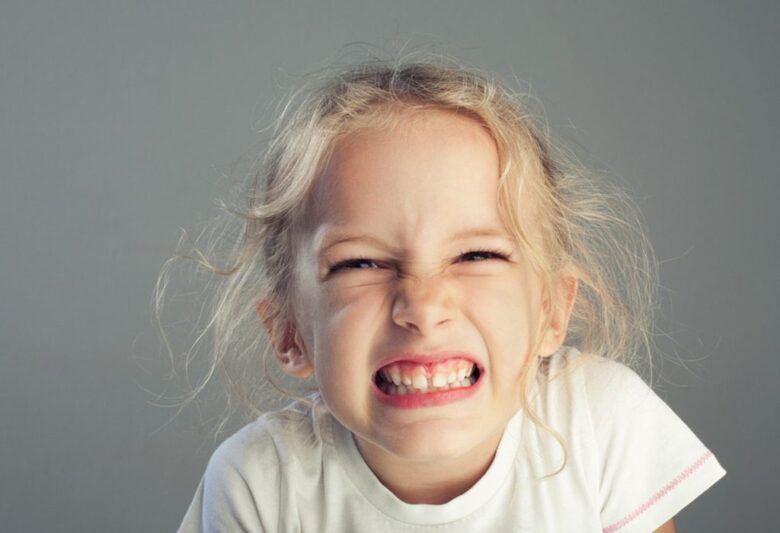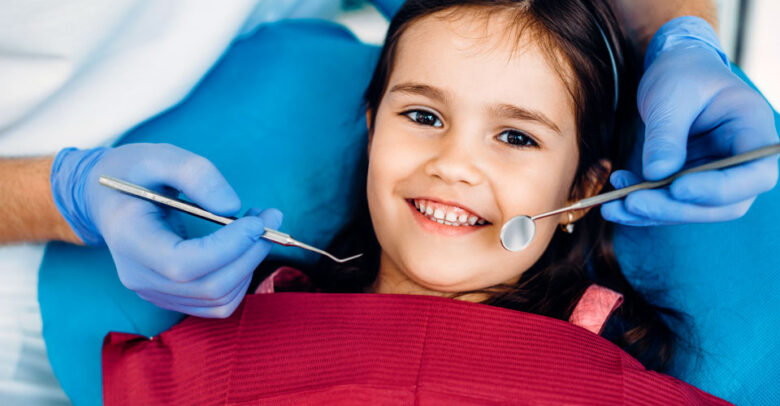As a parent, we always worry even about the smallest thing that our children do. We worry when they are not talking when they are not looking back, or even when they are suddenly not playing around. But, what if we hear some grinding noise coming from them? Sometimes, the grinding noise is too loud that it makes you cringe. Of course, it will cause a huge panic.
Contents
But what is happening?
Teeth grinding or bruxism is a condition that can lead to a few other issues with their teeth or discomfort in their jaw. The problem is, if we don’t see or possibly know that they have bruxism, it will continue as children won’t even notice that they are clenching or grinding their teeth. In this article, we will discuss what bruxism is, why it happens, and how you can help your child. By the end of this article, you’ll have a better understanding of this condition. Let’s get started.
Bruxism in Children

Source: artofsmilespasadena.com
Teeth Grinding is normal in children. It usually happens when they are stressed or angry and some parents found it cute during the first few times that they saw it. By the age of 6, most children outgrew it and stop doing it. However, if they don’t stop doing it, and it becomes chronic, it’s now time to check in with a pediatric dentist.
Take a good look at your child every morning. If you suspect that they have bruxism, check their jaws every morning and see if it is sore. Some children do this when they are sleeping so it is possible that common effects can be seen when they wake up. Bruxism doesn’t just affect their teeth but also their jaw. If you let it go on without consulting proper care, it may become a bigger problem in the future.
What are the different types of bruxism?
As we said earlier, some children do this during their sleep and some of them just do it when they are awake. With that saying, Bruxism can be classified into two different types. The awake bruxism and the sleep bruxism.
- Awake Bruxism. When a child has this condition, they always clench their jaw and grind their teeth during the time they are awake. This is why it is called awake bruxism. Teeth grinding can be a sign of stress, worry, or anger. When bruxism happens while the person is awake, they often don’t need any medical treatments because they can just stop doing it. Managing stress and raising awareness can also help them stop this behavior for good.
- Sleep Bruxism. If there is a case of awake bruxism, there’s also a case of sleep bruxism. Judging from the name, we can easily know that sleep bruxism occurs when the child is sleeping. This can cause tons of problems. Unlike awake bruxism, it’s impossible to make children aware of their grinding when they are asleep. Thus, if your child has this condition, certain medications are needed.
Awake bruxism won’t need any medication. But, sleep bruxism required intervention such as mouth guard and medications. On the other hand, you can also make sure that your child isn’t stressed out by using a few relaxation techniques.
How is Bruxism Diagnosed?

Source: drbethkailes.com
Bruxism isn’t always recognizable. Children don’t usually know that they are grinding their teeth, thus, making it harder for us to recognize them as well. Here are some of the symptoms that might help you and your dentist know if your child has bruxism.
- Grinding noises
- Pain when chewing and eating.
- Your child may have trouble sleeping
- Morning Headaches and Facial Pains such as pain in the ear and the jaw.
- Damaged Teeth.
- Sore jaw muscles.
- TMJ, which sounds like clicking or popping in the jaw.
- Jaw locking.
If you see any of these symptoms, check with your dentist immediately. These symptoms can do more harm than good if left untreated.
Treatment

Source: springbankdental.ca
Teeth grinding can be a very painful situation for your child, especially if they are unaware that they are doing it. The pain of a sore jaw and damaged teeth can confuse your child. Treatment will depend on the type and severity. Of course, there’s one way to avoid all these. You can contact a local dentist, or you can visit a pediatric dentist in Burke, VA. They are good at providing the best dental care for your children. They also can give you additional advice on how to manage the condition for a long time.
Of course, aside from dental treatments, you can also proceed to make your child relax before bedtime such as giving them a warm shower before going to sleep and reducing their stress by playing with them more often. The root cause of bruxism is mainly stress, it happens in adults as well. So, reducing it is the best treatment you can ever give. Your dentist will also recommend using a mouth guard to prevent teeth damage.
Prevalence and Age Range
Teeth grinding, or bruxism, is a common condition often observed in children, specifically between the ages of 3 and 10. Parents and guardians should be vigilant during this developmental stage to catch any early signs of the condition. Understanding the prevalence and age range of bruxism can equip parents with the knowledge needed to intervene promptly, preventing long-term complications.
Effects on Dental Health
Bruxism poses potential risks to children’s dental health. The incessant grinding can lead to enamel erosion, exposing the teeth to decay and sensitivity. When the condition is chronic, people grind their teeth, and often necessitate dental restorations, such as crowns or fillings, to address the resultant damage. Delving deeper into these complications underlines the importance of addressing bruxism early on, safeguarding children’s dental well-being.
Potential Psychological Factors
It’s pivotal to explore the psychological triggers for bruxism to understand it holistically. Stress, anxiety, and abrupt changes in routines can precipitate teeth grinding in children. By recognizing these psychological factors, parents can take appropriate steps to mitigate stressors, thereby potentially reducing the occurrence of bruxism and supporting their child’s overall mental well-being.
Role of Parents
Parents play a critical role in monitoring and managing their child’s bruxism. Regular check-ups, observing changes in dental health, and responding to suspected bruxism are crucial steps. Employing stress management and relaxation techniques can also be immensely beneficial. Parents can introduce calming bedtime routines, ensuring a conducive sleep environment to alleviate potential grinding triggers.
Conclusion

Source: wearebitesize.com
In conclusion, teeth grinding or bruxism in children is a common phenomenon and its exact cause remains unknown. However, stress and anxiety have been linked to this behavior. It is important to note that bruxism is not associated with any behavioral disorders in children.
If you notice that your child is grinding their teeth, seeking medical attention may help alleviate or eliminate the problem. A dentist or pediatrician can examine your child’s teeth and jaw to identify any physical problems that could be causing the bruxism. They may also recommend relaxation techniques or counseling to help your child manage stress and anxiety.
Ignoring the problem may lead to dental complications, such as enamel wear, tooth fractures, and sensitivity. Moreover, persistent bruxism can lead to pain in the jaw, headaches, and disrupted sleep patterns for both the child and their caregiver.
In summary, although the exact cause of teeth grinding in children remains unclear, seeking medical attention is crucial for alleviating or eliminating the problem.
